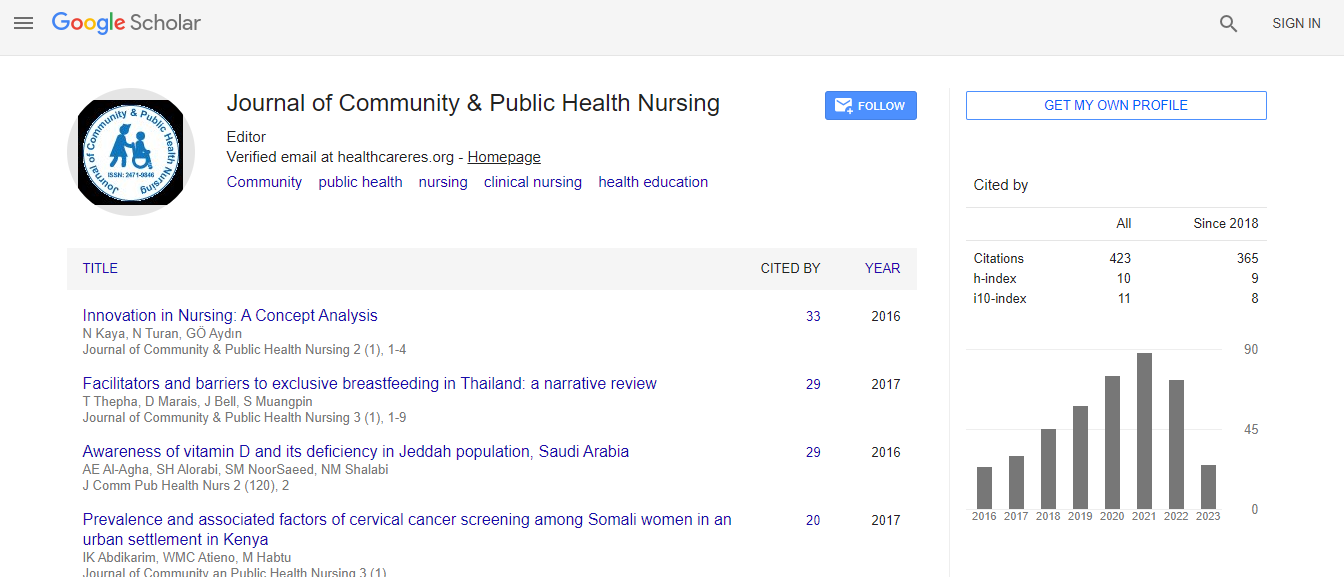Review Article
Socioeconomic Determinants of Antimalarial Drug Use Behaviours: A Systematic Review
Philip Emeka Anyanwu, John Fulton*, Timothy Paget, Etta Evans
Applied Sciences , University of Sunderland, Sunderland, SR1 3SD, UK
*Corresponding Author:
- John Fulton
Faculty of Applied Sciences
University of Sunderland, Sunderland
SR1 3SD, United Kingdom
Tel: +44 191 515 2529
E-mail: john.fulton@sunderland.ac.uk
Received date: May 05, 2016; Accepted date: May 23, 2016; Published date: May 30, 2016
Citation: Anyanwu PE, Fulton J, Paget T, Evans E (2016) Socioeconomic Determinants of Antimalarial Drug Use Behaviours: A Systematic Review. J Comm Pub Health Nurs 2:123. doi:10.4172/2471-9846.1000123
Copyright: © 2016 Anyanwu PE, et al. This is an open-access article distributed under the terms of the Creative Commons Attribution License, which permits unrestricted use, distribution, and reproduction in any medium, provided the original author and source are credited.
Abstract
Introduction: Malaria has been a major global health issue for centuries. Presently, the Artemisinin-based combination therapy (ACTs) is the most effective antimalarial drug and the recommended first line treatment by the WHO for uncomplicated malaria cases. Despite the current global reduction in malaria mortality and morbidity, the burden of malaria is still very significant, especially considering the economic, social, political and public health effects to endemic countries. A major threat to sustaining the reduction in malaria burden is the development and spread of resistance to antimalarial drugs by the Plasmodium parasites (mostly P. falciparum and P. vivax). Socioeconomic factors have been identified to affect antimalarial drug use behaviours. Nevertheless, the contributions of socioeconomic factors to antimalarial drug use behaviours have only been sparsely reported in studies; with most of the studies not primarily designed to identify or assess the association of these variables. In addition there is no existing systematic review of studies on the socioeconomic determinants of antimalarial drug use. Therefore, there is an important need for a systematic review to integrate the findings from the different primary studies so as to provide an insight into the interaction between these variables.
Methods
Search: A systematic search of literature on the socioeconomic factors associated with antimalarial drug use behaviours was conducted in May, 2015. The following databases were searched: PubMed, EMBASE, Sociological Abstracts, Biomedical and Science Direct. A hand search was also conducted. Appraisal of the studies was conducted using the Principles of Critical Appraisal for Quantitative Studies (PCAQS) recommended by the Cochrane Library.
Synthesis: This study adopted a narrative approach in synthesising the results from individual included studies using a vote count table. This approach was the ideal for integrating the data considering the type of data extracted from the studies and the need to achieve the aim of this review.
Results: The synthesis of the findings from all the studies revealed different socioeconomic factors reported in relation to antimalarial drug use behaviours. These socioeconomic actors were categorized into Educational level (10 studies); Level of income/wealth (6 studies); Type of settlement (3 studies); Ability to read (2 studies); Occupation/Source of income (2 studies); and Household size (1 study). These factors were reported in line with antimalarial drug use behaviours such as non-adherence (12 studies); self-medication/presumptive diagnosis (5 studies) and non-compliance with malarial treatment guideline (4 studies). Educational level and income were the most reported socioeconomic factors. Most of the studies reported a significant relationship between higher educational level and adherence.
Discussion: Educational level was the most reported socioeconomic factor in relation to antimalarial drug use behaviours. This relationship between educational level and antimalarial drug use is further explained when one considers the level of poor education in some of the malaria endemic areas where there have been widespread of resistance to antimalarial drugs in the past. As a key socioeconomic factor, educational level has the ability to influence other socioeconomic factors. Some of the reasons given by participants for non-adherence (such as saving drugs for future use, sharing drugs, no food to administer drugs) as reported in some of the studies reviewed are less likely to occur among individuals of high socioeconomic status. There is need to integrate the concept of socioeconomic development in the design of strategies and policies to control antimalarial drug resistance.

 Spanish
Spanish  Chinese
Chinese  Russian
Russian  German
German  French
French  Japanese
Japanese  Portuguese
Portuguese  Hindi
Hindi 
